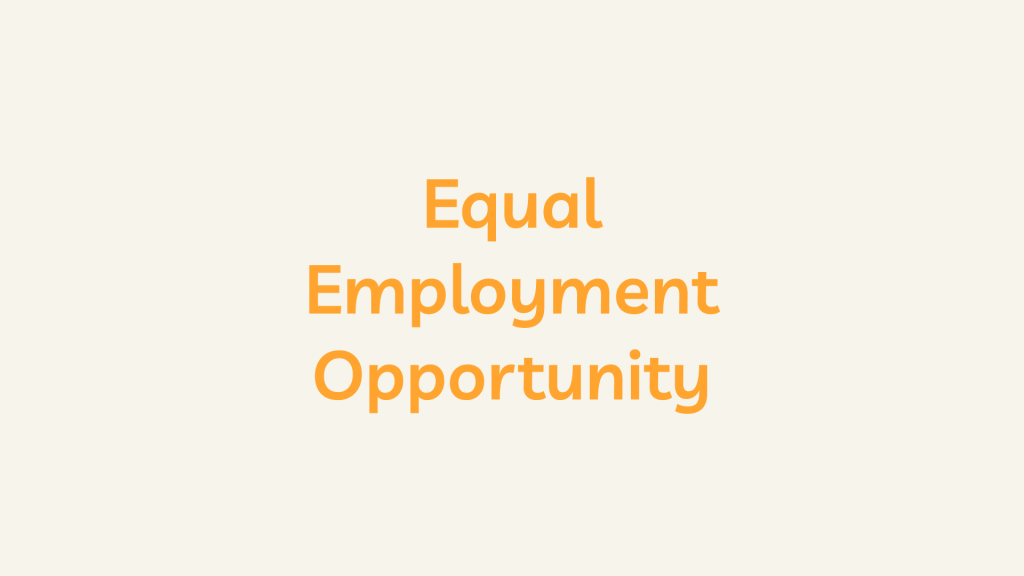What is an Equal Employment Opportunity (EEO)?
Equal Employment Opportunity (EEO) is a principle that prohibits discrimination in the workplace based on an individual’s race, color, religion, sex, national origin, age, disability, or genetic information. In this article, we’ll discuss the history and purpose of EEO and the key laws and regulations that protect employees from discrimination.
History and Purpose of Equal Employment Opportunity
The concept of EEO can be traced back to the Civil Rights Act of 1964, which prohibited discrimination based on race, color, religion, sex, or national origin. The law was enacted in response to widespread employment, housing, and public accommodations discrimination. The purpose of EEO is to create a level playing field for all employees and job applicants, regardless of their race, gender, religion, or other personal characteristics.
Laws and Regulations
Several laws and regulations protect employees from discrimination in the workplace, including:
- Title VII of the Civil Rights Act of 1964 prohibits discrimination based on race, color, religion, sex, or national origin.
- Age Discrimination in Employment Act (ADEA) prohibits discrimination against employees who are 40 years of age or older.
- Americans with Disabilities Act (ADA) prohibits discrimination against individuals with disabilities in all aspects of employment.
- Pregnancy Discrimination Act (PDA) prohibits discrimination against employees based on pregnancy, childbirth, or related medical conditions.
- Genetic Information Nondiscrimination Act (GINA) prohibits discrimination based on an individual’s genetic information.
Equal Employment Opportunity Compliance
Employers must comply with EEO laws and regulations to ensure that their employment practices are fair and non-discriminatory. This includes:
- Providing equal employment opportunities to all employees and job applicants.
- Prohibition of discrimination in all aspects of employment, including hiring, promotion, compensation, and termination.
- Making reasonable accommodations for employees with disabilities.
- Providing training and education to employees and managers on EEO policies and procedures.
Enforcement
EEO laws and regulations are enforced by the Equal Employment Opportunity Commission (EEOC), which investigates complaints of discrimination and takes legal action against employers who violate EEO laws. Employees who believe they have been the victim of discrimination can file a complaint with the EEOC or with their state or local employment agency.
In conclusion, Equal Employment Opportunity (EEO) is a fundamental principle that prohibits discrimination in the workplace based on an individual’s race, color, religion, sex, national origin, age, disability, or genetic information. Employers must comply with EEO laws and regulations to ensure that their employment practices are fair and non-discriminatory, and employees have the right to file complaints if they believe they have been the victim of discrimination.
